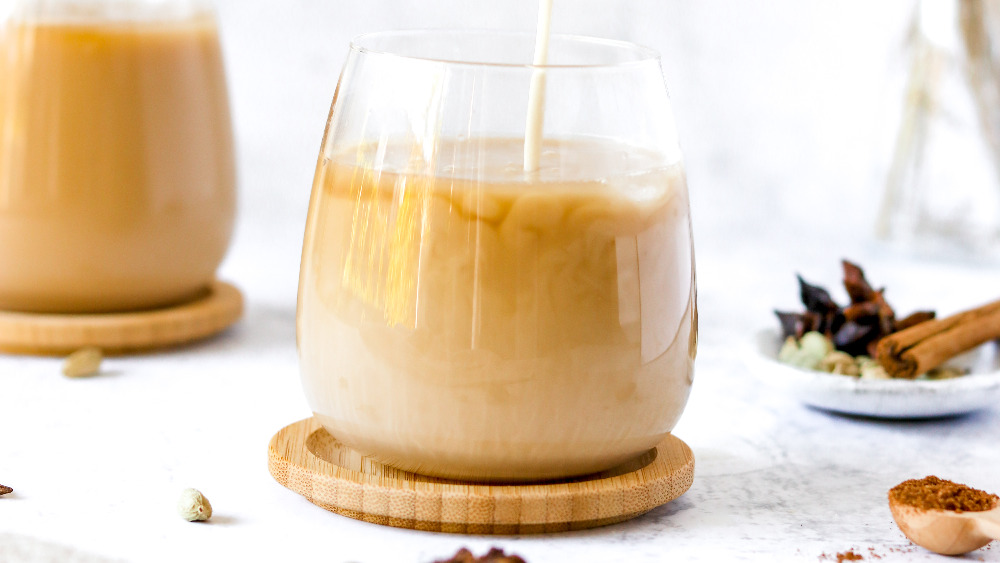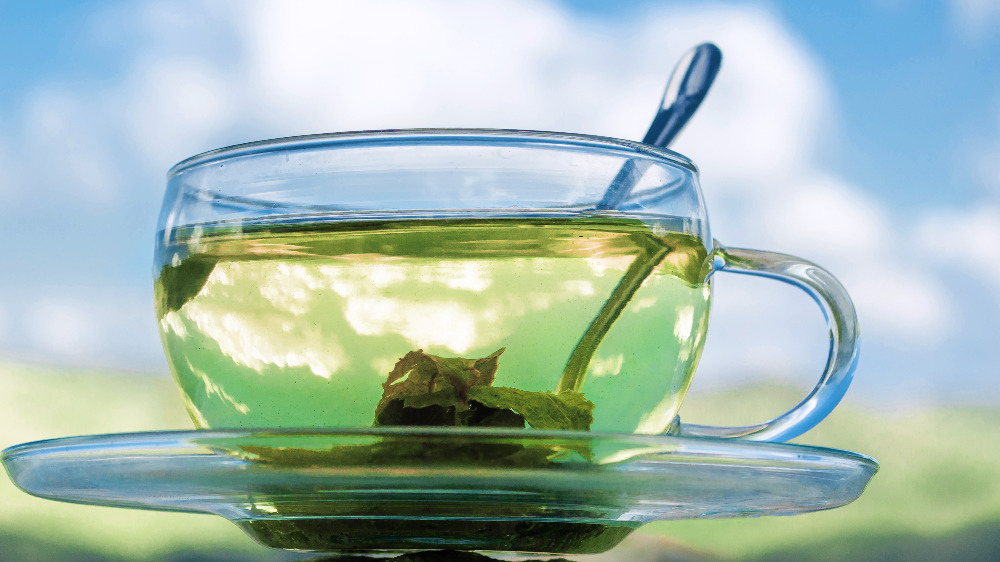Chai Vs. Green Tea: Which Is Better For You?
Whether you feel like hunkering down underneath a ton of blankets on a rainy day or just want to enjoy a refreshing, healthy drink, tea can make any situation better. The obsession with the beverage has grown steadily over the years — according to The Washington Post, up to 80 percent of Americans had the beverage in their cupboards in 2014. With so many flavors and varieties of the drink to choose from, finding a tasty and healthy tea could make anyone's head spin. Two of the most widely-available varieties of tea, green and Indian-style black chai, appear in grocery aisles across the country, but when it comes to thinking about the health benefits, choosing between the two feels daunting.
The health differences between chai and green tea start at the core of each of these fan-favorites. According to Livestrong, green tea contains fresh tea leaves that haven't been processed in any way, resulting in minimal oxidation. On the other hand, chai consists of fermented and processed black tea leaves that have undergone oxidation. A blend of spices that typically include nutmeg, cinnamon, and cloves also appear alongside the oxidized black tea, resulting in a very complex beverage. At the core of the comparison, the question boils down to comparing a cup of simple, unprocessed green tea to a complex glass of fermented and blended black chai.
To oxidize or not to oxidize — that is the question
According to Healthline, black tea and green tea derive from the same species of plant and the health properties change as a result of the oxidation process. One of the most obvious differences appears in the form of caffeine content. According to Livestrong, a serving of green tea contains 50 mg of caffeine vs. 72 mg of caffeine in a cup of chai. Both varieties also contain high amounts of flavonoids — green tea has a larger dose of catechin flavonoids, while chai has more theaflavins and thearubigins. These flavonoids aid in cellular communication and preventing illnesses from spreading through your body. Early studies additionally show both varieties of tea help lower cholesterol, minimizing the risk of heart disease. With so many similarities, how could anyone possibly choose between the two?
If you love a steaming cup of tea in your day, you have reason to celebrate. In order to glean the most nutrition from your tea, drink both varieties to reap the benefits of the different flavonoids and get the range of health benefits. If you want to cut down on caffeine but don't want to abandon your tea, lean towards green, but have no fear indulging in either variety the next time a craving strikes and take heart knowing that both varieties have equal health appeal.

